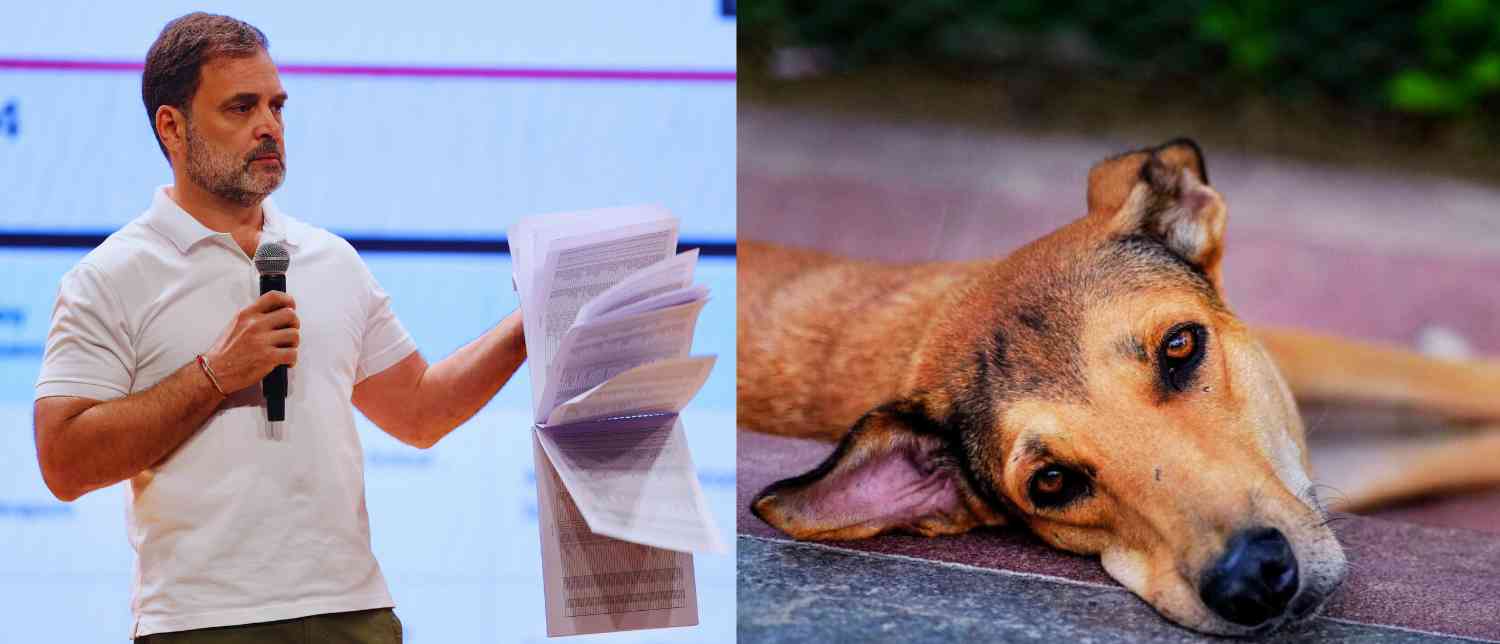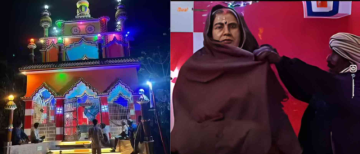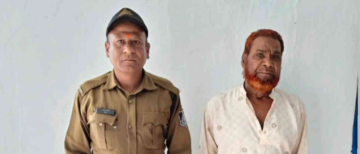The recent uproar over stray dogs in Delhi-NCR has stirred emotions across the country. Following a Supreme Court order in August 2025, authorities were instructed to remove and relocate thousands of stray dogs to shelters after a sharp rise in bite incidents and rabies concerns. The numbers are worrying — over 37 lakh dog bite cases were recorded in India last year, with Delhi contributing a significant share. The court stressed urgency, warning officials of contempt action if its directive was ignored.
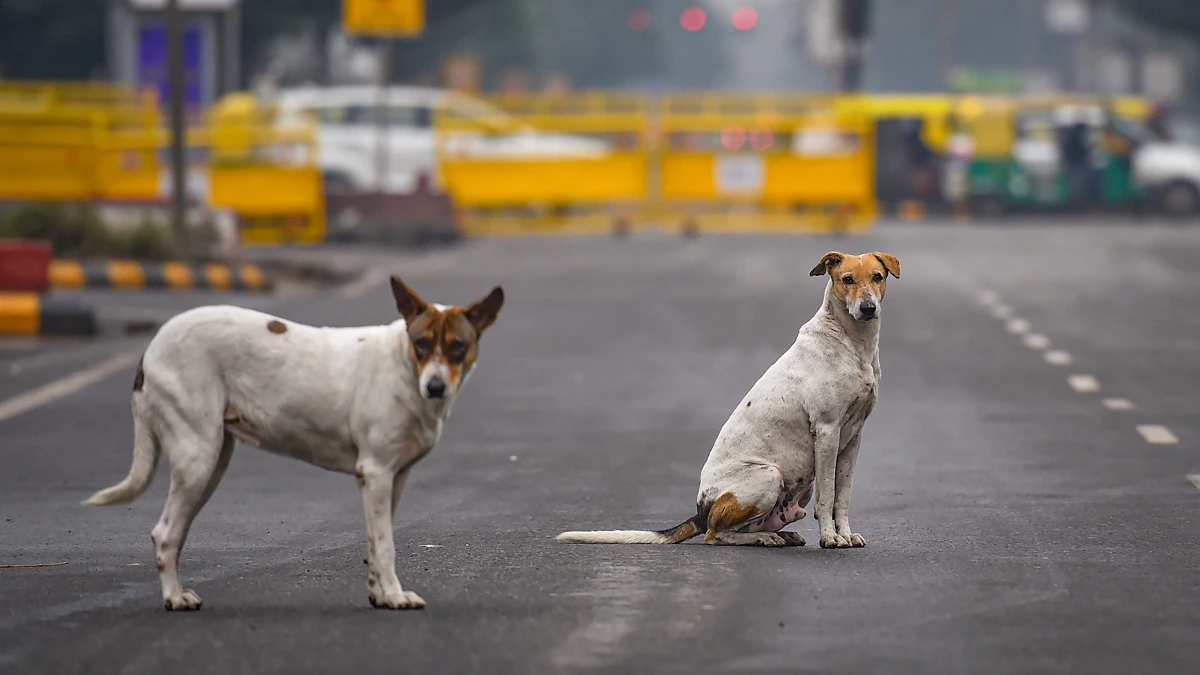
But even as this sensitive debate plays out, another controversy continues to simmer — allegations of “Vote Chori,” or electoral malpractice. These claims cut to the heart of Indian democracy, calling into question the fairness, transparency, and legitimacy of elections. While the stray dog issue is dominating headlines and sparking passionate arguments on social media, suspicions arise: is this wave of attention being used to distract citizens from the deeper, more damaging allegations surrounding the electoral process?
Tactical diversion in politics is not new. It works by amplifying an issue that stirs public emotion so strongly that it overshadows another topic which may be politically inconvenient for those in power. Stray dogs as a subject naturally evoke intense feelings — compassion for animals, fear of attacks, and concern for public safety. This makes it an easy candidate for endless debates in television studios and WhatsApp group discussions. In contrast, allegations of vote tampering require closer attention to complex facts, legal procedures, and investigations — matters that can appear distant or overly complicated for many citizens, even though their impact is far greater.
_1755156946.jpg)
The question, then, is whether the stray dog controversy has been deliberately magnified to take the spotlight away from the Vote Chori allegations. The timing is worth examining. The court’s order was a suo motu action, based on public safety concerns and backed by hard data. This points to a genuine need to address the situation. However, once the story entered public discourse, it took on a life of its own. Media houses devoted high prime-time coverage to it, and political voices amplified the noise. Whether by design or by coincidence, this shift effectively drew attention away from a politically sensitive discussion about electoral integrity.
There is a delicate balance here. Public health concerns involving stray animals cannot be brushed aside as mere distraction. Urban India does face a serious challenge in managing its growing stray population humanely while ensuring citizen safety. Ignoring this would be careless. Yet, it is equally dangerous to let a heated but narrow issue dominate public space while questions about the fairness of our democracy go unanswered. Allegations of Vote Chori, if true, undermine the very foundation of governance. They deserve continuous scrutiny, not fading interest.
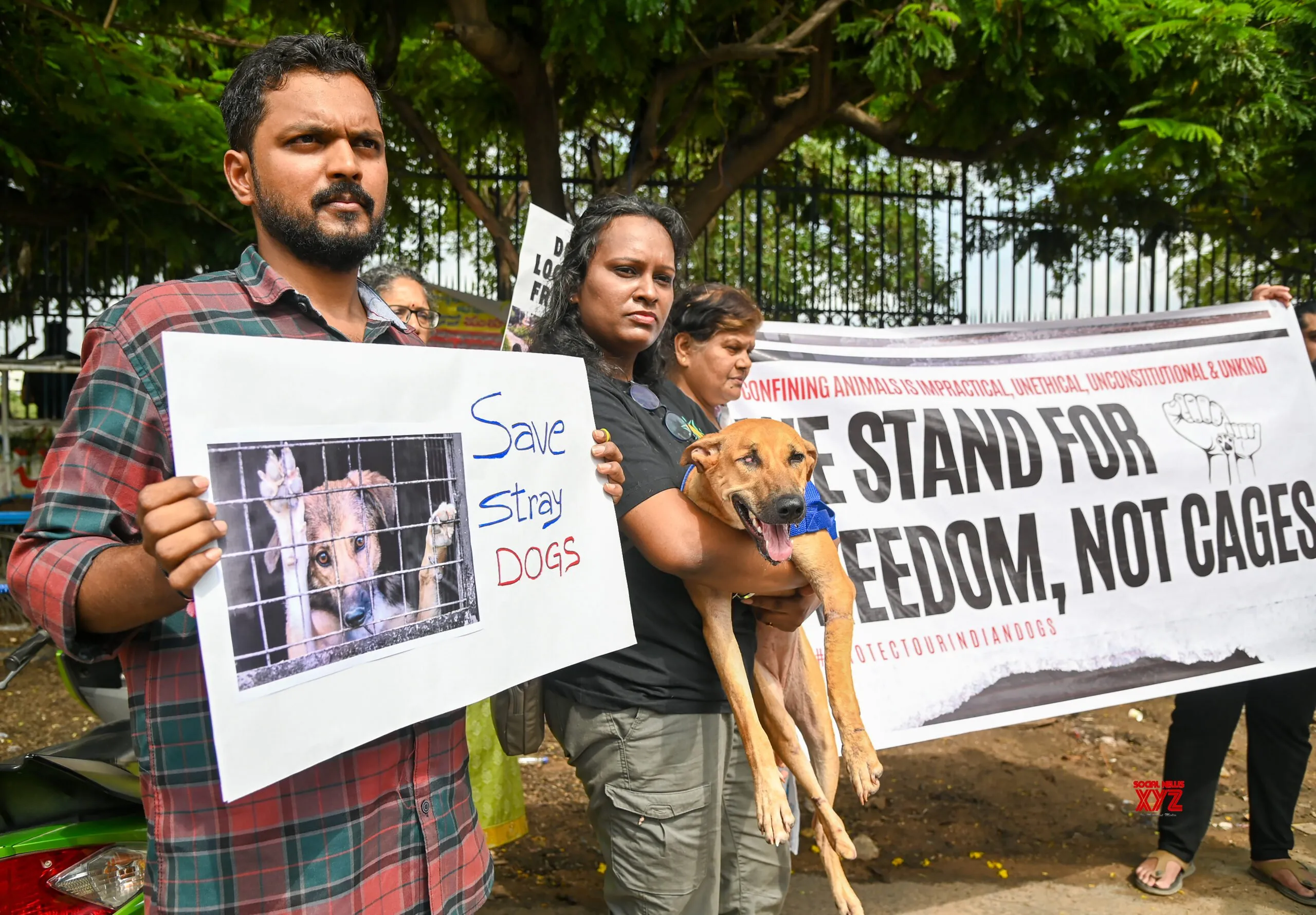
Unfortunately, the media ecosystem thrives on stories that are emotionally charged and visually rich — videos of street dogs, protests, rescue operations — while shying away from slower, document-heavy electoral investigations. Politicians, commentators, and strategists know this and often ride these waves, consciously or not, to shape the national conversation.
The way forward lies in refusing to let these two concerns compete for relevance. India can — and must — address both. Humane stray dog management policies, backed by science and adequate funding, need to be implemented urgently. At the same time, investigations into alleged electoral malpractice must be thorough, transparent, and free from political influence.
Citizens should be wary of narratives that pull focus entirely towards one issue while letting another slip into silence. Vigilance, a balanced perspective, and the ability to engage with both immediate crises and long-term structural problems are essential for a healthy democracy.
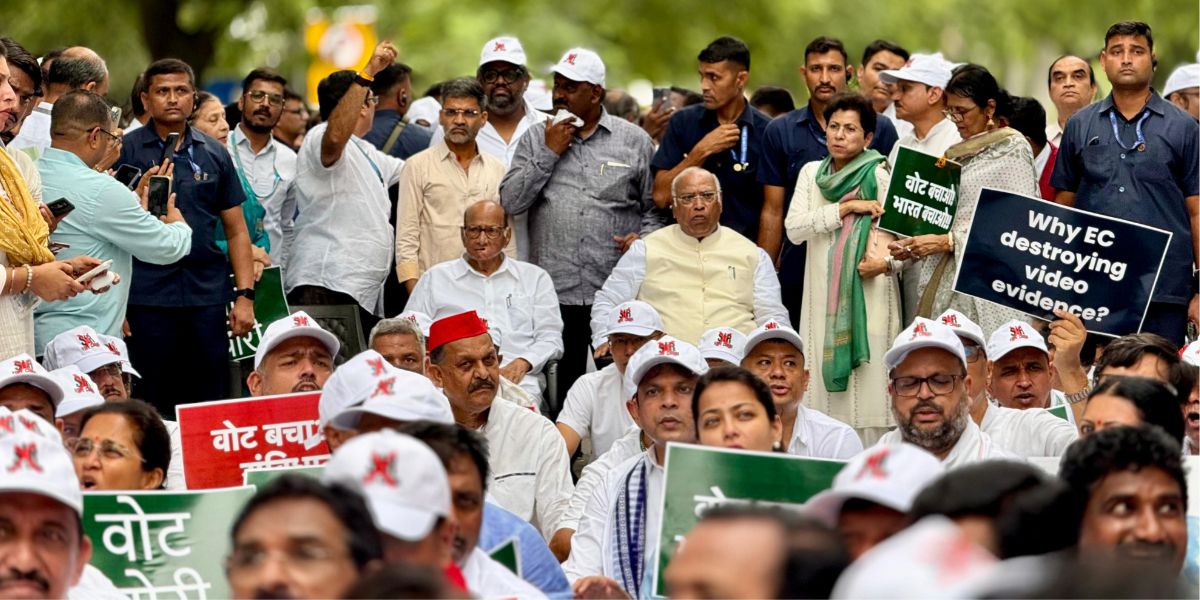
The stray dogs controversy is real. The Vote Chori allegations are equally real — and far more damaging if proven. One speaks to our compassion and safety as communities. The other speaks to the survival of democracy itself. Neither should overshadow the other. We must protect both — the humane values that govern our society and the democratic framework that sustains it.
With inputs from agencies
Image Source: Multiple agencies
© Copyright 2025. All Rights Reserved. Powered by Vygr Media.

